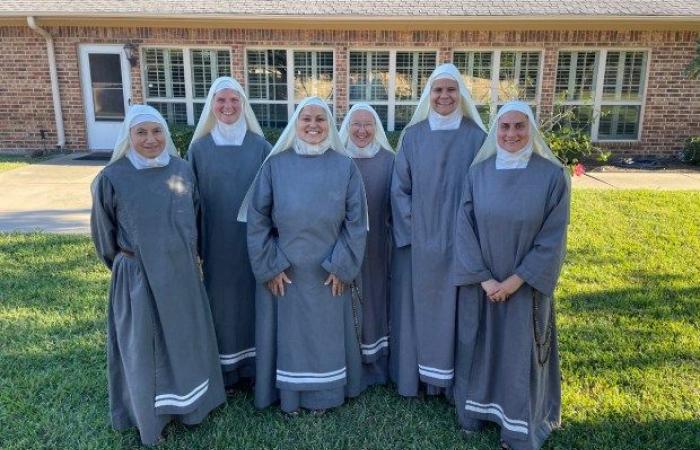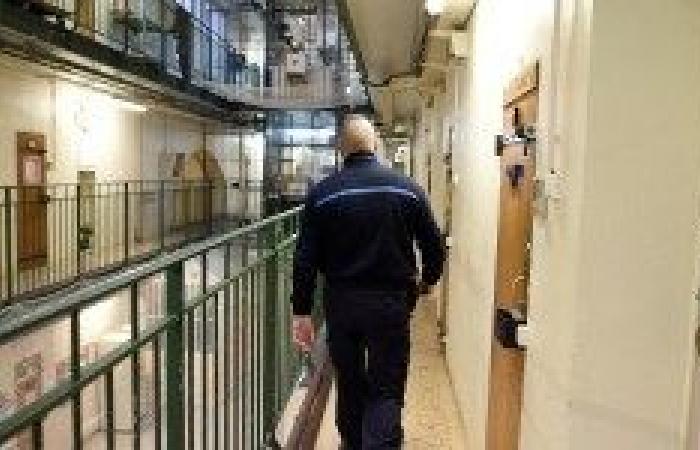The Sisters of Mary Morning Star are like most contemplative orders…except for their monthly visits to a group of incarcerated women. Discover their exceptional and edifying testimony.
In a convent in Waco, Texas, the sisters of Mary Star of the Morning live, like most nuns, an existence dedicated to prayer, silence and solitude. But these sisters have a very unusual mission as part of their contemplative religious vocation. Once a month, they visit a group of seven women on death row at Gatesville Prison in Texas. Since these visits, six of these seven incarcerated women have become not only Catholics but also Oblates of the Sisters of Mary Star of the Morning. As Oblates, lay members of the third order, they receive the support and strength of belonging to a spiritual family. They also commit to praying daily for the sisters and their various convents around the world.
An unexpected mission
This unique ministry began with a visit from permanent deacon Ronnie Lastovica, who has dedicated more than seven years to prison ministry. Ronnie Lastovica saw similarities between the lives of the sisters and those of these incarcerated women, and he wanted to bring the two groups of women together. For him, organizing such a meeting “could help these women learn to live their life in prison as something akin to a “monastic life” marked by prayer, meditation on the Scriptures and fraternal life in community.” says one of the nuns, Sister Mary Thomas. The sisters were very surprised by this request. In general, they do not have an apostolate and do not often leave their convent. But they wanted to meet these incarcerated women, and after getting permission from their superiors, they set out on what they thought would be a one-time visit.
That first visit, three years ago, didn’t start out very promisingly. Sister Lydia Maria recalls, “Extreme experiences for all five senses awaited us when we first entered the prison: guards with guns and cell keys, bars, security doors and, unfortunately, to get to death row, one must first pass through the psychiatric corridor where one’s sense of smell and hearing are tormented by screams and disgusting odors. We were approaching our destination and did not know what. wait for us.” But everything changed when they finally entered the meeting room. Sister Mary Thomas remembers: “I was very surprised by what I saw when I entered: five smiling women, very happy to receive us.”
A surprisingly similar life
The sisters then introduced themselves and described an ordinary day in their life. It was then that these two groups of women together began to be surprised by the resemblance of their daily lives. “We have a very similar and very simple life. We don’t do extraordinary things. Every day we follow the same schedule. We all wear the same clothes. We have manual work and daily chores, and we live in the ‘obedience’, the nuns observe. “The fact that we even called our rooms ‘cells’ brought smiles and laughter from the women!”
We felt very close to them.
Although their lives are outwardly close, the major difference is that the sisters freely chose to live this way out of love for Christ. But it was the simplicity of the sisters’ contemplative life that quickly broke down all barriers: “We felt very close to them.” The bond between the two groups is so strong that the sisters know they will return. Indeed, for three years, once a month, five of them have gone to the prison.
A typical visit
The visits last two hours and Sister Lydia tells Aleteia about their progress: “Each time we go, we greet each other with great joy to see each other again, then we form one or two groups to read the Bible. Sometimes a famous priest Mass and we share the Holy Eucharist When this is not the case, we usually end up singing and saying some prayer intentions which we confide to each other. Then Deacon Ronnie says a prayer,. gives us the Holy Eucharist and blesses us with water.”
“What deeply marks me each time is the fact that the contemplative sisters and the sisters condemned to death are all together, standing or kneeling, receiving mercy and love, body, soul and divinity of Jesus Christ in the Holy Eucharist, without distinction; none is better than the other. We are all sisters and Jesus is happy to enter our hearts and to be in our midst. in great silence before saying Goodbye”. Humanly, this cannot be explained, but the love and light of Christ are felt very strongly in this corner of the prison, in this small town in central Texas.
-Bringing forgiveness to death row
Among the discussions at the monthly meetings, incarcerated women asked to know more about how the sisters discovered their call to religious life. A woman also asked how sisters resolved differences and arguments that might arise between them, and this question led to an important conversation. The sisters explained that differences are a part of life and can be handled with grace. “It is normal that we do not always agree, but when there are disagreements or we hurt each other, or we speak badly to each other unintentionally, often because of human weakness, we We then ask each other’s forgiveness.”
© Frame Stock Footage I Shutterstock
This is particularly the case within the framework of the “chapter”, a weekly meeting. “It is a moment of great simplicity and confidence in the fact that Christ has everything in his hands and that it is he who transforms us little by little through his love” confides Sister Lydia Maria. The week following this testimony from the sisters, one of the incarcerated women spontaneously asked the others for forgiveness, which had never happened before, even though some of them have lived together for 10, 15 or even 20 years. “Since then, they have gotten into the habit of asking each other’s forgiveness. This has completely transformed the way they relate to each other.”
A testimony of hope
If the incarcerated women learned a lot from the sisters, the sisters also learned from them. Sister Mary Thomas described how incarcerated women were a testimony to true Christian hope for her. “I was a little scared the first time I went there. I wondered what I could possibly have in common with these women, what I could talk to them about. But when I met them, I didn’t I have not met criminals, nor prisoners. I have met women, human people who, because of the situation in which they find themselves, are stripped of all pretensions and all masks. These women have faced it so honestly. their brokenness and their suffering – whether it was a terrible past, a terrible crime or the injustice of a wrongful conviction – and they had the courage not to despair.”
And she adds, “each of us is tempted in one way or another by depression, discouragement or despair, but with Jesus, there is always a way out, a path to freedom, even if this freedom is only in the spirit. They must continually look death in the face and see beyond them the eternity of joy and peace that Christ freely promises us, whatever we have done. whether we have committed terrible crimes or whether we are simply overwhelmed by the struggle against our vanity, our selfishness or our pride, when we receive the free gift of Christ’s grace, we are all worthy of living from the joy and freedom of Christ. But it takes a lot of courage and freedom. humility to accept this free gift. This is what these women taught me.
The “corridor of light”
Because of the hope and freedom that incarcerated women witness, the sisters no longer speak of “death row” but prefer to call it “the corridor of light.” And, indeed, the sisters brought a lot of light into the lives of these women incarcerated at Gatesville prison, as one of them, Britanny Holberg, testifies. Recently becoming a Catholic, she is now an Oblate of the Sisters of Mary Star of the Morning. “I believe that what the world should know most about [de la vie des sœurs]is that you are all a light in the darkness. A way to see the infinite love of Jesus for those who do not believe they are worthy of such love. Jesus said he came for the sick, and the prisons are full of sick people who desperately need to see his love reflected in the eyes of another. This ministry is so desperately needed because there are souls behind these walls who need to know the redeeming love of Christ. They need to know that nothing separates them from the love of Christ Jesus.”
It is through this moving testimony that the universal abolition of the death penalty, a fight dear to Pope Francis for the jubilee year of 2025, takes on new resonance.









